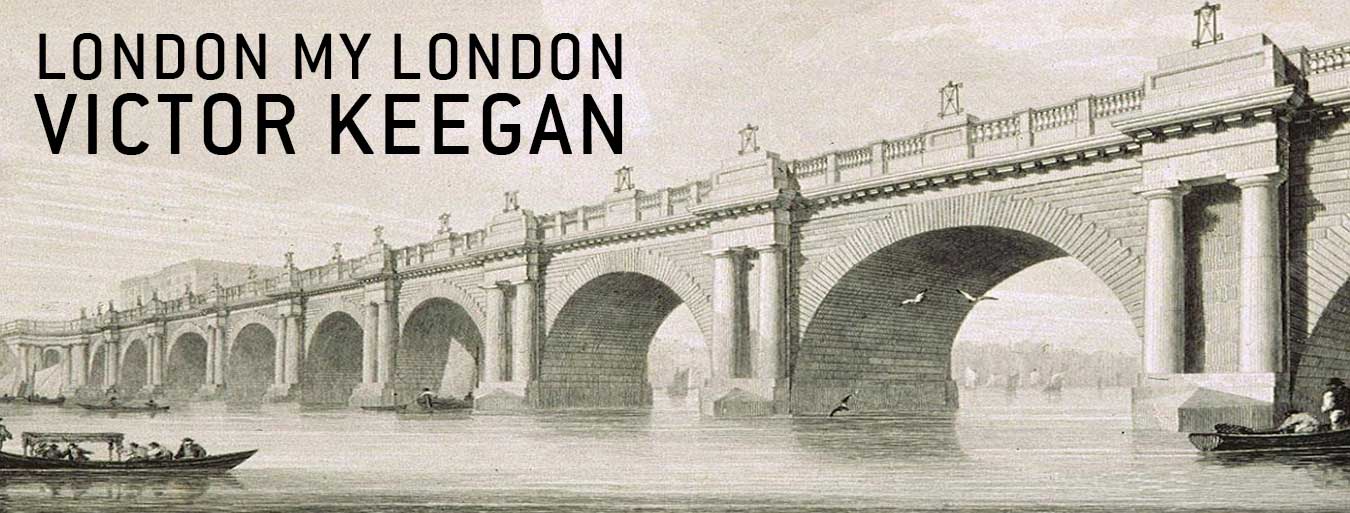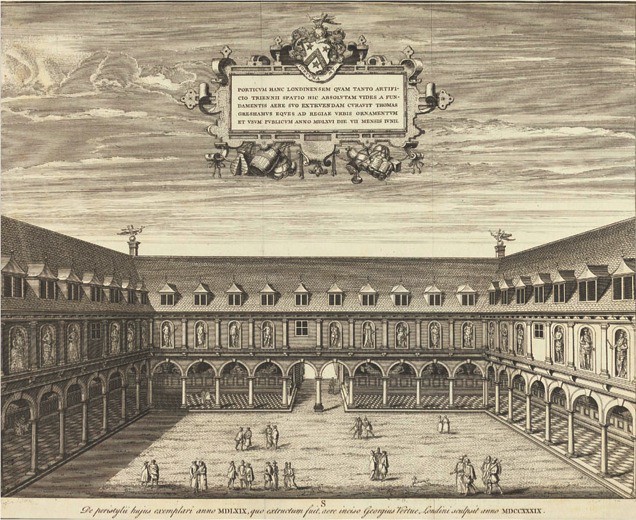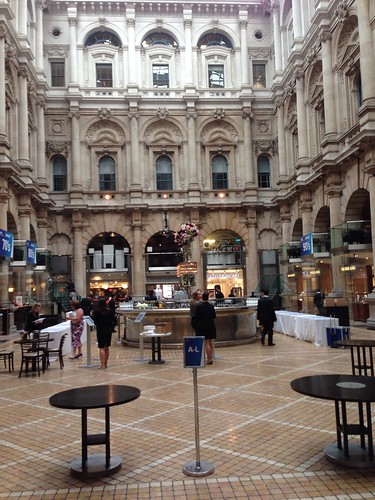Then Now
If you enter the Royal Exchange building today – between the Bank of England and the Mansion House – you could be forgiven for wondering why this historic edifice has been turned into a succession of posh shops. The answer is – that is how it started. When the amazing Sir Thomas Gresham built the nation’s first Bourse (or Burse) there in 1567 so traders could meet in one central place instead of the streets around, he also turned the first floor into an array of 150 shops or stalls, mainly for well-to-do women giving it a strong claim to be the first shopping mall. It was said you could find more coaches there than outside church doors.
Sir Thomas’s vision undoubtedly laid the foundation for Britain’s financial supremacy. But the interesting thing is how much then – as now – that success depended on foreigners. Sir Thomas saw the commercial opportunity provided by immigrants piling into London to escape the clutches of the Inquisition. He got permission from the City’s ruling aldermen to “employ such strangers about the making of the said Burse, as he might think proper”.
The works were “under the guidance of a Flemish architect, and conducted by a Flemish carpenter”, according to John William Burgon, biographer of Sir Thomas Gresham who also claimed that, apart from wood from Suffolk “nearly all if the materials of which the edifice was composed were brought from Flanders”. Labourers protested at the influx of immigrants and, according to Burgon, the bricklayers of the city had been guilty of “many misdemeanours, both in words and deeds” towards Sir Thomas Gresham; jealous, probably, of the foreigners he had begun to employ.
Not only that but half of the merchants trading in the exchange were foreign also from Holland France and Germany as Sir Thomas sort to wrest financial and trading success away from Antwerp and Venice.
Burgon concluded: “His (Gresham’s) wish to see the arts and artisans of the Low Countries transported into England was actually fulfilled and that so completely that our commercial greatness may be said to have arisen on the ruins of that of Antwerp. The Flemings came over in immense numbers, established their manufactures, and enriched the country to a prodigious extent. A census taken in 1567 found that of 4,851 strangers in the city no less than 3,838 were Dutch at a time when London’s population was around 255,000.
Triggered by a Sunday lecture by Prof Jean E Howard at the V&A (http://shalt.org.uk/)


